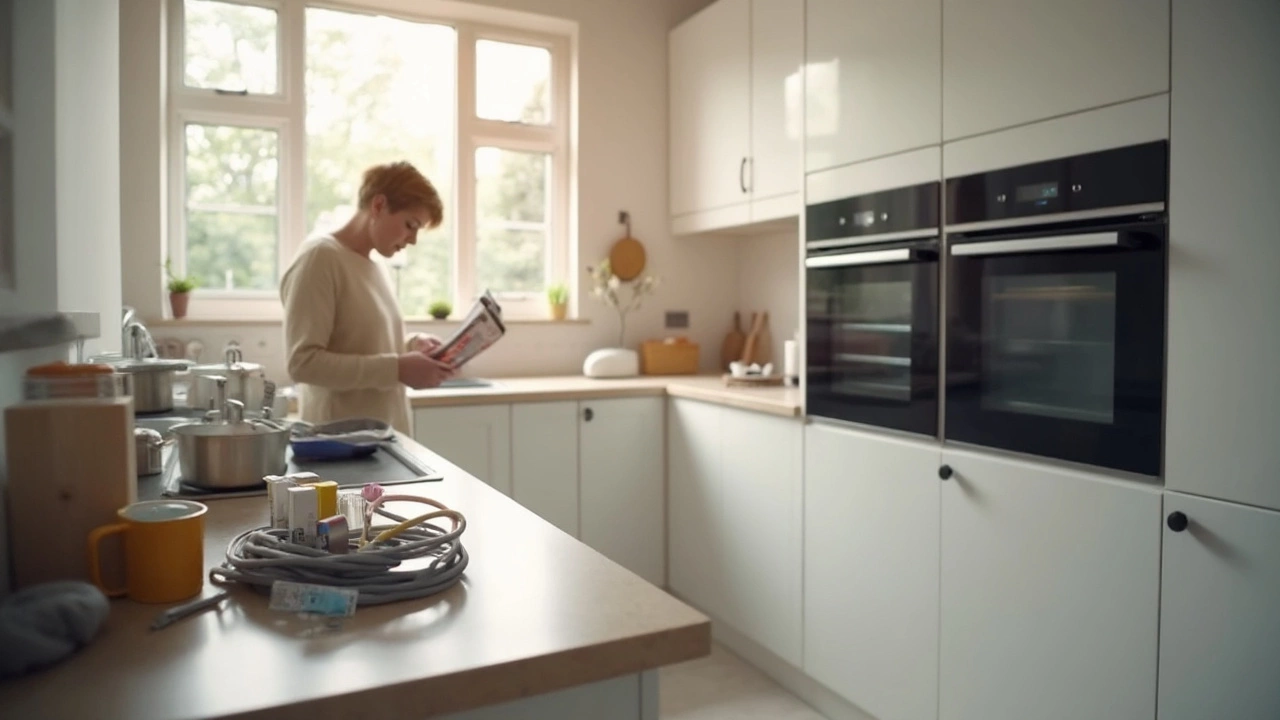Kitchen Safety: Simple Steps to Protect Your Home and Appliances
Every time you turn on the oven or fire up the hob, you’re creating a chance for something to go wrong. A little care now can stop a big problem later. Below are easy habits that keep your kitchen safe without slowing down meal prep.
Everyday Habits for a Safer Kitchen
Keep work surfaces clear. When pans, plates, or utensils crowd the stove, you’re more likely to knock something over or miss a hot spot. Wipe away spills right away – grease can ignite in seconds.
Check cords and plugs. Look for frayed wires, cracked plugs, or loose connections. If a cord feels hot or the plug wobbles, stop using it and call a repair tech. Don’t run cords under rugs or behind appliances; they need airflow to stay cool.
Use the right cookware. A pot that’s too small for the burner creates uneven heating and can warp the cooktop. Glass lids belong on the stove only if they’re labelled as oven‑safe.
Ventilate properly. An extractor fan that’s clogged with grease loses power and can overheat. Clean the fan filter monthly with warm, soapy water, and schedule a professional clean if the motor sounds noisy.
Keep a fire extinguisher nearby. A Class K or multi‑purpose extinguisher works best for kitchen fires. Test it once a year and make sure everyone in the house knows how to use it.
Teach kids safe zones. Set a clear “no‑touch” area around hot appliances. Use stove knob covers and keep pot handles turned inward so little hands can’t grab them.
When to Call a Professional
If an oven won’t heat, a hob sparks, or an extractor fan hums loudly, it’s time to get an expert. Trying to fix electrical parts yourself can cause shock or worsen the damage. A qualified technician can inspect heating elements, replace faulty thermostats, and tighten loose wiring.
Regular service is a smart move even when everything seems fine. A quick check once a year can spot early wear on seals, rust on water heater tanks, or buildup in fridge coils. Preventive repairs save money and avoid surprise breakdowns during busy cooking seasons.
Remember, safety isn’t a one‑time checklist; it’s a habit you build each time you cook. By keeping surfaces clean, inspecting cords, and letting pros handle the tricky jobs, you protect your family, your home, and your appliances for years to come.

Can You Just Plug In a New Electric Oven? Here’s What to Know
Thinking about swapping your old oven for a new electric one? It's not always as simple as plugging it in and calling it a day. This guide breaks down what you need to know about wiring, outlets, and safety before you try installing an electric oven yourself. Get clear advice on when you can handle things solo and when to call in a pro. Learn the small details that make a huge difference in how your oven works and how safe your kitchen will be.